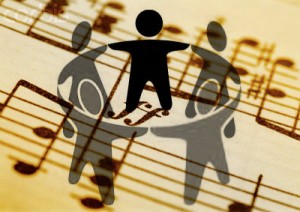Posted on July 10, 2015

It is arguable that music would not exist without people and inspiration. This is subjective, of course, because one could also argue that music exists everywhere in nature. However, humans organize music at a much higher level than the rest of nature and use it as a form of intellectual creative expression. People’s relationship with music is as old as time itself. There is no documented time in which people discovered music; it has simply always been a part of humanity. Music is as old as cave drawings and long lost societies. This reveals that people and music are intrinsically connected and are ever affecting one another.
It is common knowledge that music affects people. Music has been put to many practical mental and physical health uses. It inspires dance, art and masterful levels of musicianship that serve as people’s vocations and passions. It has long been said that music is the language of emotions, which is why music is good for people. Music expresses what words cannot. When a feeling is so powerful or overwhelming that words cannot suit it, music takes their place. Music can be something that people create or receive. Either use is powerful and impacting. Music aids in resolving mental health issues and is even proven to aid in the recovery of the physical body.
Equally true is that people affect music. Assuming that music could exist outside of humanity, people have taken music through an evolution of epic proportions. Music has gone from basic percussion, wind and string instrumentation in ancient times, to choral and symphonic groups that perform masterpieces, to the present music industry, which has become its own animal. Music as we know it has always been a product of human experimentation and expression, and over the course of humanity it has changed in resemblance a great deal. It is hard to imagine what kind of music awaits humanity in the future. There is no saying which way an art form will evolve. It is a product of too many mysterious factors to predict.